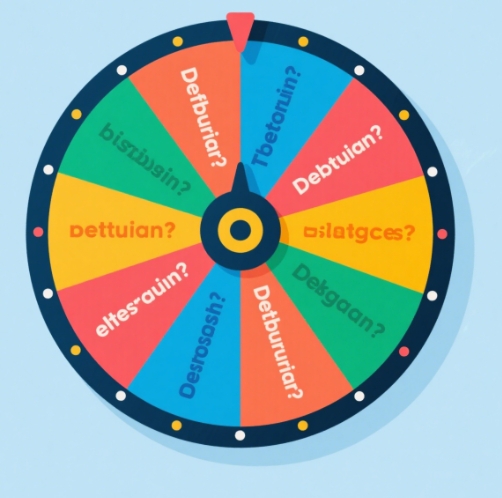Engaging teens in substantive dialogue can feel like cracking a code. That’s where a Wheel of debate topics for teens comes into play—an interactive tool that randomly generates thought-provoking prompts, bridging the gap between apathy and curiosity.
Teens Crave Purposeful Engagement
Many teenagers report feeling bored or disconnected in traditional classroom activities, while studies link heavy social media use to anxiety, depression, and low self-esteem edubirdie.com+2blog.collegevine.com+2kialo-edu.com+2en.wikipedia.org. A spinning debate wheel introduces choice, surprise, and challenge—key ingredients that disrupt passive scrolling and ignite genuine interest.

Debate Delivers Real Cognitive Benefits
Research from the Boston Public Schools, Harvard, and UVA reveals that students who participate in debate see measurable improvements in English Language Arts test scores and are more likely to graduate and attend college—even students who started with lower performance education.virginia.edu. Similarly, a nationwide study linked debate participation to better reading comprehension, critical thinking, and school attendance .
Pain Point: “Why Should I Care?”
Teens often ask: “Why does debate matter to me?” A debate wheel answers this by providing relevant, high-interest topics like social media ethics, mental health, or AI in education—areas teens are already googling. When teens see their concerns reflected, they’re more likely to invest emotionally and mentally.
Building Social–Emotional Skills Through Rotation
A spinning format encourages participants to empathize, as they may land on a viewpoint that isn’t their own. This mirrors the structure of the National High School Ethics Bowl, where students discuss nuanced ethical issues collaboratively—without assigning adversarial roles ft.com+2apnews.com+2apnews.com+2. This format trains teens not just to argue, but to listen deeply and respect differences.
What Makes a Debate Wheel Truly Effective?
1. Carefully Curated Topics
Include themes that balance controversy and curiosity, and for which good data exists. Think: “Should schools teach financial literacy?” or “Is social media helping or hurting teen mental health?”
2. Structured Prompts & Background
Provide teens with starter facts or statistics (e.g., “90% of teens rely on social media for news” ), enabling factual argumentation rather than guesswork.
3. Rotating Formats
Alternate between classic pro/con motion and Ethics Bowl–style discussion, to build both strategic argument skills and civic empathy.
4. Reflection Frames
After each spin, prompt: “What surprised you?” or “How did this affect your perspective?” This nurtures metacognition and self-awareness, essential teenage growth tools.
Outcomes: Skills That Stick
- Critical thinking
Debate training has been shown to enhance analytical reasoning—for example, a semester-long study of debates improved undergraduates’ critical thinking scores blog.kialo-edu.com+1apnews.com+1. - Communication confidence
Teens report reduced stage fright and better oral presentation skills through regular debate practice blog.kialo-edu.com+15researchgate.net+15newsweek.com+15. - Civic engagement readiness
Former debaters are more likely to vote, volunteer, and stay socially involved blog.kialo-edu.com+1apnews.com+1en.wikipedia.org+11en.wikipedia.org+11educationnext.org+11.
Integrating the Debate Wheel on SpinTheWheel
By embedding a customizable Wheel of debate topics for teens into your platform, SpinTheWheel becomes more than just a game—it becomes a learning hub. Teens spin, land on compelling prompts, and dive into discussions enriched with curated facts and follow-up reflection questions.
Incorporating research-backed elements ensures not just entertainment, but academic growth, emotional resilience, and civic readiness. Make debate engaging, accessible, and meaningful—with SpinTheWheel leading the way.